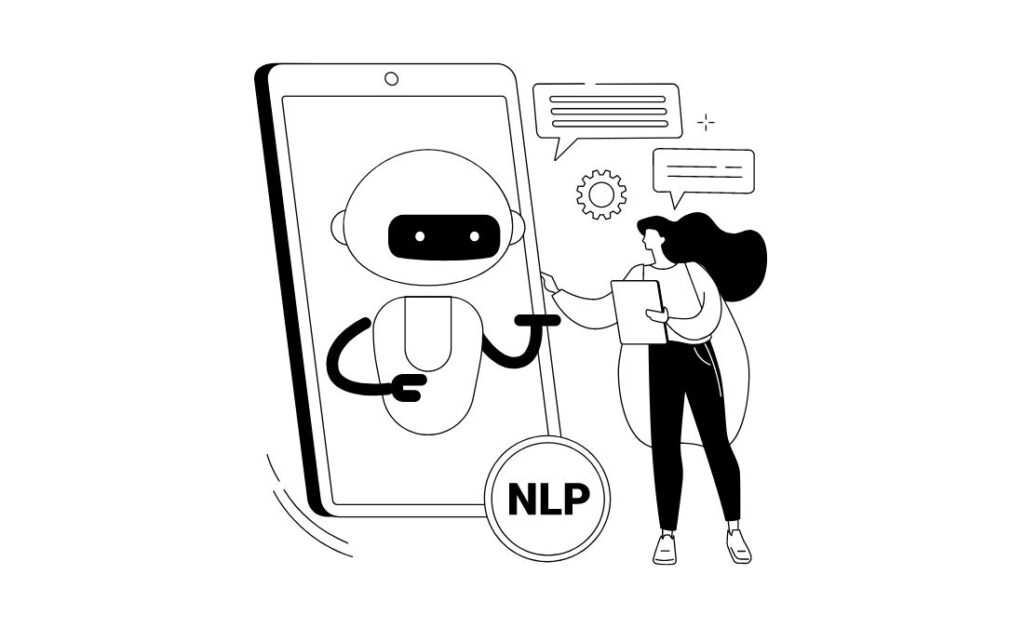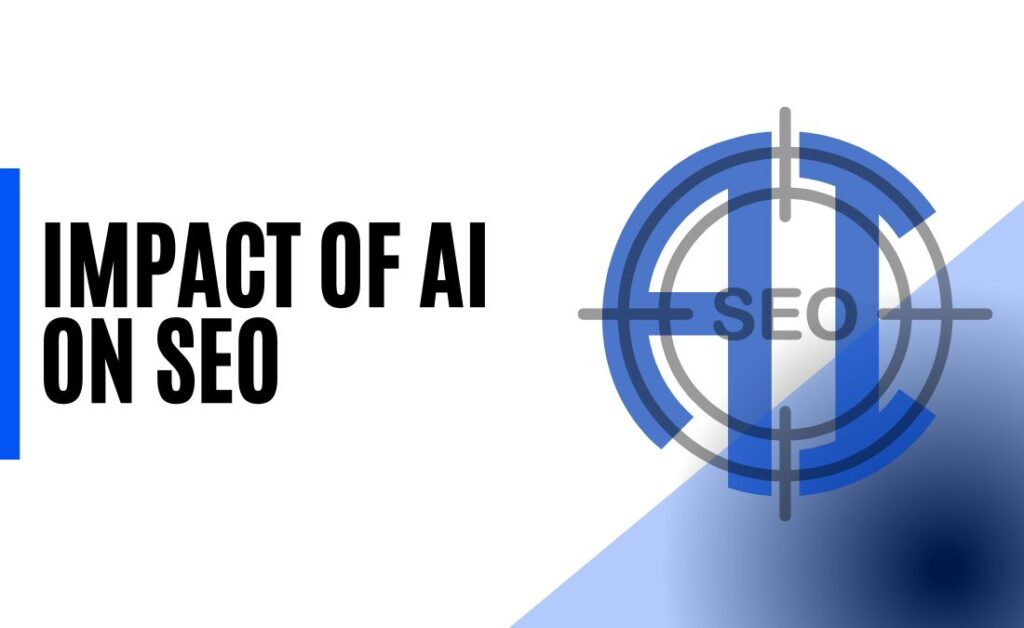In recent years, the rapid advancement of artificial intelligence or AI has profoundly impacted various industries. One area where AI has made a significant impact is SEO. As search engines become smarter and more sophisticated, it is crucial for businesses and website owners to understand the impacts of AI on SEO and adapt their strategies accordingly.
This article explores the revolutionary impact of AI on SEO and how it is helping brands rank higher in search engines.
Importance of SEO
With the increasing reliance on search engines to find information, products, and services, SEO has become a critical aspect of digital marketing. AI technologies have revolutionized how search engines process and deliver search results, leading to significant changes in SEO strategies.
Understanding AI in SEO
AI is about developing computer systems capable of performing tasks that typically require human intelligence. In the context of SEO, AI algorithms analyze vast amounts of data, learn patterns, and make predictions to improve search engine rankings and user experience.
Enhanced Search Algorithms
AI has enabled search engines to develop more advanced algorithms to understand user intent better and deliver highly relevant search results. With AI, search engines can now interpret complex search queries, consider contextual factors, and provide more accurate answers to users.
AI-powered search algorithms use various techniques such as machine learning, natural language processing, and semantic analysis to understand the meaning behind search queries better. This enables search engines to provide more relevant results by considering user location, search history, and intent. As a result, businesses need to optimize their websites with high-quality, relevant content that aligns with user intent to improve their search engine rankings.
Natural Language Processing (NLP)
NLP is a branch of AI that focuses on the interaction between computers and human language. With NLP, search engines can comprehend the meaning behind search queries and understand the context in which they are used. This development has led to more accurate search results and improved user satisfaction.
NLP allows search engines to understand the nuances of human language, including synonyms, contextual meanings, and natural language patterns. It helps search engines accurately determine the user’s intent, leading to more relevant search results. As an SEO strategy, optimizing website content using relevant keywords and phrases that align with natural language patterns to improve visibility in search results is important.

Voice Search Optimization
The rise of voice assistants like Siri, Alexa, and Google Assistant has increased the importance of voice search optimization. AI-powered voice recognition technology enables search engines to understand spoken queries and deliver relevant results. As a result, businesses need to optimize their content for voice search to maintain visibility in this evolving landscape.
Voice search optimization involves understanding how people phrase their queries when using voice assistants and creating content that aligns with those natural language patterns. This includes using long-tail keywords, conversational language, and providing concise, direct answers to commonly asked questions. Optimizing for voice search can help businesses capture the growing number of voice search users and improve their SEO performance.
Read Also: How to Find a Good SEO Consultant in 2023?
Personalized Search Results
AI algorithms can analyze user behavior, preferences, and past search history to deliver personalized search results. This customization enhances the user experience by providing tailored content that aligns with individual interests and needs. For businesses, understanding user intent and creating personalized content is crucial for SEO success.
Personalized search results consider factors such as user location, search history, demographics, and browsing behavior to provide relevant content to individual users. This means businesses must focus on creating personalized experiences through content recommendations, personalized offers, and targeted marketing campaigns. By understanding their audience and tailoring their SEO strategies accordingly, businesses can improve their visibility and engagement with users.
Improved User Experience
AI plays a significant role in enhancing user experience on websites. By analyzing user behavior and engagement metrics, AI algorithms can identify areas for improvement, such as page load speed, mobile optimization, and content relevance. Websites prioritizing user experience are more likely to rank higher in search results.
AI-powered algorithms analyze website user interactions, including click-through rates, bounce rates, and time spent on page, to determine the overall user experience. Websites that load quickly, have responsive designs, and provide high-quality, relevant content are more likely to satisfy user intent and receive positive engagement signals. Prioritizing user experience by optimizing website performance and usability can positively impact SEO rankings.
Automation of Repetitive Tasks
AI automation can streamline repetitive SEO tasks like keyword research, content optimization, and link building. By utilizing AI-powered tools, marketers can save time and allocate resources to more strategic initiatives. Automation also reduces the risk of human errors, ensuring consistency and accuracy in SEO activities.
AI-powered tools can analyze vast amounts of data and perform tasks quickly and precisely. Keyword research tools can provide insights into search volume, competition, and keyword trends, helping marketers identify valuable keywords to target. Content optimization tools can analyze existing content and provide recommendations for improving relevance and readability. Link building tools can analyze backlink profiles and suggest opportunities for acquiring high-quality links. By automating these tasks, marketers can focus on strategy and creativity, leading to more effective SEO campaigns.
Data Analysis and Predictive Analytics
AI excels at analyzing vast amounts of data and extracting meaningful insights. In SEO, AI can process and interpret data related to keyword performance, competitor analysis, and user behavior. These insights can inform decision-making and enable marketers to optimize their strategies for better search engine rankings.
AI-powered analytics tools can provide comprehensive data analysis and predictive insights. Marketers can gain valuable information about keyword rankings, search trends, and competitor strategies to guide their SEO efforts. By leveraging AI-driven analytics, businesses can make data-driven decisions and stay ahead of the competition in the ever-changing landscape of SEO.
Ethical Considerations
As AI continues to shape the field of SEO, ethical considerations become crucial. It is essential to use AI responsibly and ensure that algorithms are unbiased, transparent, and respectful of user privacy. Striking the right balance between automation and human oversight is essential to maintain ethical SEO practices.
Ethical considerations in AI-powered SEO include ensuring algorithm transparency, avoiding discriminatory biases, protecting user privacy, and complying with relevant regulations. Regularly auditing and monitoring AI systems is important to identify and rectifying any biases or unethical practices. Data collection and usage transparency is also important to build trust with users. By prioritizing ethical practices, businesses can demonstrate their commitment to providing fair and valuable experiences to users.
Future Trends in AI and SEO
The synergy between AI and SEO is likely to evolve further in the future. Some potential trends include AI-powered content creation, advanced voice search capabilities, predictive SEO analytics, and enhanced local search optimization. Staying informed and adapting to these trends will be key to staying competitive in the digital landscape.
Conclusion
AI has brought about significant changes in the field of SEO. With enhanced search algorithms, NLP, voice search optimization, and personalized search results, AI has revolutionized the way businesses optimize their websites for search engines. By leveraging AI technologies and staying up to date with emerging trends, businesses can maximize their SEO efforts and improve their online visibility.


